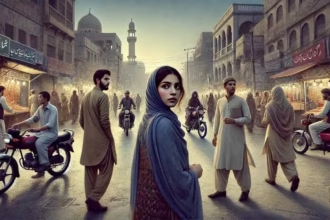Pakistan is facing some of the most pressing environmental and social challenges of our time, from scarce resources to environmental degradation. The traditional linear economy, which is based on a take-make-waste model, has had a significant impact on the environment and the availability of resources. This model operates on the premise of extracting natural resources, manufacturing products, and disposing of waste, without considering the long-term impacts on the environment or the depletion of resources. In this model, resources are treated as unlimited and are extracted, used, and discarded without regard to the consequences. This traditional linear economy is no longer adequate for the challenges of the 21st century. But there is hope. The hope is in the Circular Economy.
The Circular Economy is a systemic approach to economic development that aims to keep resources in use for as long as possible. Unlike the traditional linear economy, which relies on the constant extraction of finite resources and generates waste and pollution, Circular Economy operates on the principles of designing out waste and pollution, keeping products and materials in use, and regenerating natural systems.
Circular Economy is a systemic approach to economic development that aims to keep resources in use for as long as possible.
One of the most successful examples of the circular economy is the European Union’s circular economy strategy. The EU’s circular economy strategy aims to reduce waste and promote sustainable resource use, and it has already had a significant impact on reducing waste and increasing resource efficiency in Europe. For example, the EU has introduced legislation aimed at reducing waste, promoting recycling, and increasing the use of sustainable and renewable resources, which has helped reduce the impact of resource use on the environment and ensure the sustainable use of resources.
According to a recent report by the Ellen MacArthur Foundation, the Circular Economy could deliver a potential benefit of $1 trillion to the global economy by 2030. The report also highlights that the transition to the Circular Economy could create up to 6 million new jobs worldwide by 2030.
Pakistan has the potential to reap significant benefits from the transition to the Circular Economy. The country is rich in natural resources, including water, arable land, and renewable energy. By embracing the Circular Economy, Pakistan can conserve these resources, reduce waste and pollution, and create new economic opportunities.
The circular economy also has the potential to create new economic opportunities and jobs. By promoting sustainable resource use and minimizing waste, the circular economy encourages the development of new industries, such as recycling and resource recovery, which can create new economic opportunities and jobs. This is particularly important in a country like Pakistan, where unemployment is a major challenge and there is a need for new economic opportunities.
Pakistan has the potential to reap significant benefits from the transition to the Circular Economy.
The public sector has a critical role to play in the transition to the Circular Economy. Through policies and regulations that encourage sustainable resource use and low-carbon development, the public sector can create the enabling environment for Circular Economy. By investing in renewable energy and sustainable infrastructure, the public sector can conserve energy and reduce emissions.
The private sector also has an important role to play in the transition to the Circular Economy. By innovating and implementing Circular Economy solutions, the private sector can reduce waste and pollution, conserve resources, and create new economic opportunities. From designing products that are easy to repair and reuse, to investing in renewable energy and sustainable infrastructure, the private sector has a critical role to play in building a more sustainable and resilient future.
Individual consumers also have a critical role to play in the transition to the Circular Economy. By changing their consumption patterns and choosing products and services that are circular, individual consumers can reduce waste and pollution, conserve resources, and create new economic opportunities.
To put it in a nutshell, the transition to the Circular Economy offers a unique opportunity for Pakistan to build a more sustainable and resilient future. By embracing the Circular Economy, Pakistan can conserve resources, reduce waste and pollution, and create new economic opportunities. The Circular Economy is a path to sustainability and prosperity for Pakistan, and it is up to us to seize this opportunity.







